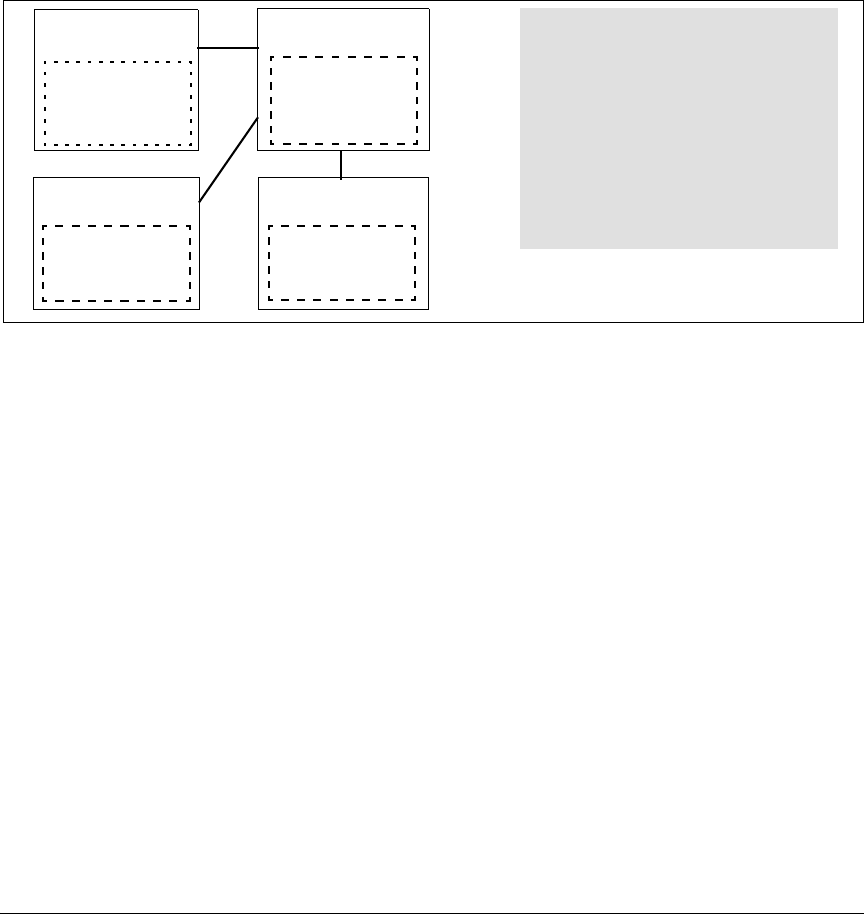
Configuring for Network Management Applications
CDP
General CDP Operation
The switch stores information about adjacent CDP devices in a CDP Neigh-
bors table maintained in the switch’s MIB (Management Information Base).
This data is available to SNMP-based applications designed to read CDP data
from the MIB. For example:
Switch "A"
with CDP Running
• The Neighbors table in switches "A", "B", and "D"
contain information on switch "C" only because
it is the only neighbor for these switches.
• The Neighbors table in switch "C" contains
information on switches "A", "B", and "D"
because all of these switches are neighbors of
switch "C".
Note: A given switch’s CDP Neighbor table
includes data only on neighbor CDP devices, but
not on that switch itself.
CDP Neighbor Table
Switch "C" data
Switch "B"
with CDP Running
CDP Neighbor Table
Switch "C" data
Switch "C"
with CDP Running
CDP Neighbor Table
Switch "A" data
Switch "B" data
Switch "D" data
Switch "D"
with CDP Running
CDP Neighbor Table
Switch "C" data
Figure 13-10. Example of How the Switch Stores Data on Neighbor CDP Devices
Outgoing Packets
A switch running CDP periodically transmits a one-hop CDP packet out each
of its ports. This packet contains data describing the switch and, if the one-
hop destination is another device running CDP, the receiving device stores the
sending device’s data in a CDP Neighbors table. The receiving device also
transmits a similar one-hop CDP packet out each of its ports to make itself
known to other CDP devices to which it is connected. Thus, each CDP device
in the network provides data on itself to the CDP neighbors to which it is
directly connected. However, there are instances where a packet is forwarded
beyond the immediate neighbor, or simply dropped.
13-27
